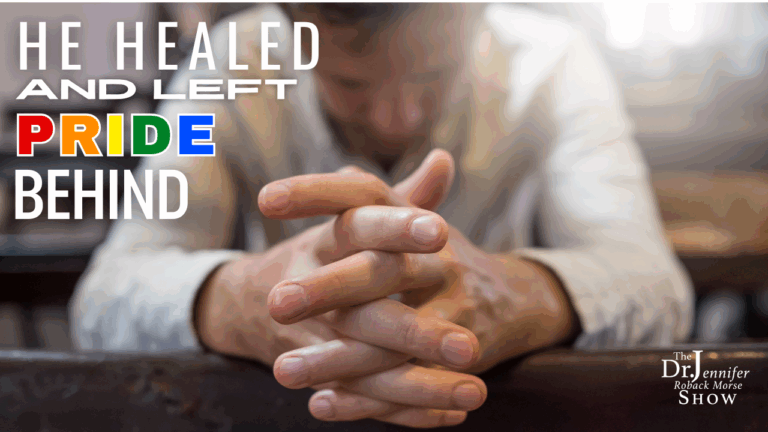A U.S. federal court just ruled that two people have the right to talk about whatever they want to talk about. “What?” you may say, “why is this even an
issue?” Good question.
In Otto v. City of Boca Raton, therapist Robert Otto sued the Florida city of Boca Raton for the right to talk with clients, in the privacy of
his office, about their feelings of sexual attraction, the impact those feelings may be having on their lives, and strategies for improving the quality
of their lives. Why did Mr. Otto need to go to court over this, you may ask?
The City of Boca Raton and the county of Palm Beach, at the behest of certain activist groups and professional societies, had passed an ordinance banning
“conversion therapy” or “reparative therapy” or, to use a more neutral term, “Sexual Orientation Change Efforts.” The 11th Circuit Court of Appeals in Atlanta overturned these ordinances.
But why would a city government ban a particular therapeutic practice in the first place? Why would an activist group want them to ban private speech?
Supporters of the Sexual Revolution are committed to the belief that sexual orientation is an innate, immutable trait, comparable to race. If the activist
groups can convince the law that being gay is like being black, then the entire anti-discrimination legal structure can be used to treat self-described
“sexual minorities” as a legally protected class. This is why the claim that people have no meaningful choice over their sexual orientation is so politically
important. These ideological groups not only claim that change is impossible. They go so far as to claim that trying to change sexual orientation will
be actively harmful.
So that is why cities are banning certain types of therapy: They are trying to prop up a false belief that happens to be useful to politically powerful
groups. If this ban were left in place, therapists like Robert Otto and his colleagues would be unable to provide help to people who come to them seeking
an alternative to the politically popular view.
Here is the problem: It is simply not true that sexual orientation is an immutable trait. There is no “gay gene.”
Being gay is nothing like being black.
African Americans know full well that this is true. A person’s race is immediately obvious. A person’s sexual orientation may not be. The thoughts, feelings
and behaviors covered under the umbrella term “sexual orientation” include many items that are chosen. Skin color is not chosen in any way.
In fact, many African Americans are deeply offended by this high-jacking of the moral authority of their civil rights movement. In the immortal words
of Rev. Charlene Cothran, “You can see that I’m black from a block away. I can’t change my skin color.”
In fact, sexual orientation is an ambiguous term, not a well-defined scientific category. Sexual orientation is a complex multidimensional phenomenon with
numerous meanings and interpretations. Scientists from various disciplines have used the term to refer to sexual desires, sexual activity , sexual
fantasies that involve mostly imaginary partners of the same sex, self-identification as “gay,” or some combination of these. In their 2016 article, psychiatrist Paul McHugh and biostatistician Lawrence Mayer review this issue, going all the way back to the first major systematic statistical study
of sexual orientation in 1994. The team of University of Chicago researchers found “While there is a core group (about 2.4 percent of the total men
and about 1.3 percent of the total women) in our survey who define themselves as homosexual or bisexual, have same-gender partners,
and express homosexual desires, there are also sizable groups who do not consider themselves to be either homosexual or bisexual but have
had adult homosexual experiences or express some degree of desire.” More recently, Dr. Lisa Diamond, a well-respected researcher and a self-described lesbian, has stated: “There is currently no scientific or popular consensus on the exact constellation
of experiences that definitively quality an individual as lesbian, gay or bisexual rather than curious, confused or maladjusted.” Presumably, some
of the “curious,” “confused” or “maladjusted” might voluntarily show up in a therapist’s office, hoping for help.
The U.S. Court of Appeals for the 11th Circuit actually examined the evidence about sexual orientation change efforts. The court stated:
“[The Defendants] present a series of reports and studies setting out harms of SOCE (Sexual Orientation Change Efforts.) But when examined closely, these
documents offer assertions rather than evidence, at least regarding the effects of purely speech-based SOCE. Indeed, a report from the American Psychological
Association, relied on by the defendants, concedes that ‘nonaversive and recent approaches to SOCE have not been rigorously evaluated’” (page 21).
The court’s careful look at the evidence is very important, in my opinion. But even more importantly from a legal perspective, the bans on therapy are
bans on speech. After all, the therapist is simply talking with the patient about his or her problems. Prohibiting speech is a dangerous business.
In legal terms, “content-based regulations” of speech are subject to “strict scrutiny,” meaning, a government better have a darned good reason to restrict
speech based on the content of that speech. The 11th Circuit said, “because the ordinances depend on what is said, they are content-based restrictions
that must receive strict scrutiny” (page 6).
In fact, the court said that the ordinances are even worse. Not only are these content-based regulations, but these ordinances also indulge in what is
called “viewpoint discrimination.” The therapy bans prohibit some viewpoints while permitting others.
The majority decision found viewpoint discrimination in the exceptions that the ordinances contain. “Counseling that provides support and assistance to
a person undergoing gender transition,” is not considered “conversion therapy,” and so is permitted. The court observed, “No such carveout exists for
sexual orientation. The ordinances thus codify a particular viewpoint — sexual orientation is immutable, but gender is not — and prohibit
the therapists from advancing any other perspective when counseling clients. That viewpoint may be widely shared in the communities that passed the
ordinances, but widespread agreement is beside the point; the question is whether a speaker’s viewpoint determines his license to speak” (page 12).
Banning therapy surrounding a condition that is not scientifically well-defined is way too broad. Speech-based sexual orientation change efforts have not
been proved to be harmful. Content-based regulations of speech are unlawful. Viewpoint discrimination is unlawful. These ordinances are unconstitutional
and bad public policy.
Counselors in these Florida jurisdictions at least, can now feel free to discuss issues of same-sex attraction and sexual identity with their clients.
That is why is why I am grateful that the 11th Circuit Court of Appeals ruled as
it did. I will let the court have the final word:
“We understand and appreciate that the therapy is highly controversial. But the First Amendment has no carveout for controversial speech.”
Jennifer Roback Morse, Ph.D., is founder and president of The Ruth Institute. Her latest book is The Sexual State: How Elite Ideologies are Destroying Lives (and how the Church was Right All Along). The full citation for the University of Chicago study is: Edward O. Laumann et al., The
Social Organization of Sexuality: Sexual Practices in the United States (Chicago: University of Chicago Press, 1994). Chapter 8 examines homosexuality. The quote is from pp. 300-301, based on information in Figure 8.2 and Table 8.2.
This article was originally published at the National Catholic Register



